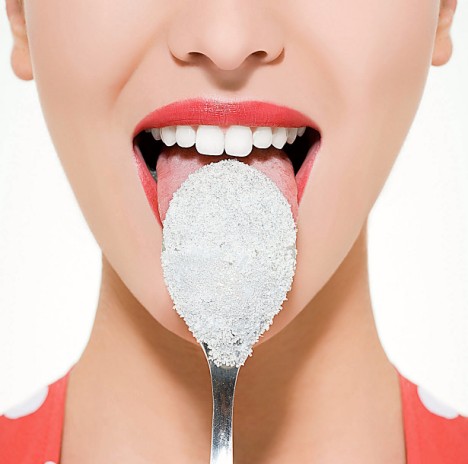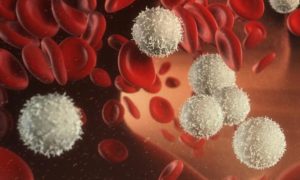When I ask this question to most people the answer usually lies somewhere between 2-5 teaspoons.
That answer comes from the notion that the only sugar anyone would knowingly consume, that too a spoonful of it, would be the one you put into tea/coffee or morning cereal or any sweet dish as a dessert.
The truth is that a vast majority of people around the world and especially here in the middle east consume anywhere from 30-80 teaspoons of sugar everyday not knowing the various ways they are masked in their daily meals and snacks.
Let’s visualize this through an example….
You wake up, have a cup of tea or coffee , have a healthy cereal(corn flakes/frosties/chocos) , some go on to finish with a fruit like an apple or a banana.,
At the office probably a croissant, some more tea , maybe a chocolate bar.
Lunch could be KFC meals, McDonalds , AED 5 burgers with fries and coke, Thali for most working Indians , Biriyani , white bread/brown bread sandwiches with all sorts of additions, salads
Afternoon tea or coffee , another snack, some nuts, maybe some low fat yoghurt,
Dinner would be mostly similar to lunch with the option of full machine grilled chicken and shawarma
Maybe another tea with friends
Sounds very average or normal right? I mean there is not much of butter, ghee , fats , not much of red meat , not much of oil. How bad can it be? If you throw in some more salad somewhere in there it surely can reach a low fat diet standard so you must be safe from getting diabetes, cholesterol, B.P issues etc. That’s what everyone thinks.
Let’s dig into the details and specifically SUGAR.
Your body needs all basic elements of food in a very specific proportion for optimal nutrition. It needs fats, it needs carbohydrates, it needs protein, it needs vitamins and minerals, and it needs water.
No diet that is too low in any of these elements would be a good diet.
— Low sugar diet will make you lethargic, as you need sugar to power yourself.
— Low protein diet will affect your muscle growth, your digestion, your metabolism etc as proteins make up enzymes, muscles, connective tissue etc.
— Low fat diet will affect your nervous function and brain function, as they are essential for information processing, digestion etc.
There has been a lot of fad about fat and a whole industry of food products have evolved in the low fat segment. But is fat the culprit the whole time for diabetes?
When your body gets complex carbohydrates like starch or even simple sugars like glucose or fructose from fruits the digestive process and its effects in the blood is very different from when you consume refined industrial sugars present in most processed and supermarket shelf foods.
Watch the video below to get an idea of how excess sugars affect your cholesterol and fat levels in your blood.
Now, you must be still wondering why would all this matter when you don’t consume so much sugar. Let’s take a look back at the diet I mentioned earlier and cross check it with the refined sugar equivalency table below.
|
Name of Food |
Grams of Sugar |
Tablespoons |
Teaspoons |
|
1 tablespoon sugar |
12.5 |
1 | 3 |
|
1 teaspoon sugar |
4 |
3 |
0.33 |
|
1 Condensed Milk (170 gms) |
91 |
7.28 |
22.75 |
|
1 Can Coke(350 ml) |
41 |
3.28 |
10.25 |
|
1 table spoon Honey(21 gms) |
17 |
1.36 |
4.25 |
|
1 cup Corn Flakes(42 gms) |
6 |
0.48 |
1.5 |
|
1 cup Frosties(42 gms) |
15 |
1.2 |
3.75 |
|
1 Chicken Burger |
8 |
0.64 |
2 |
|
1 Slice of white bread |
1.5 |
0.12 |
0.375 |
|
1 Slice of brown bread |
1 |
0.08 |
0.25 |
|
1 packet of crisps/chips |
4 |
0.32 |
1 |
|
1 bar of Butter |
6 |
0.48 |
1.5 |
|
1 large French fries serving |
23 |
1.84 |
5.75 |
|
1 bar of any chocolate |
29 |
2.32 |
7.25 |
|
1 cup white rice |
26 |
2.08 |
6.5 |
|
1 cup brown rice |
23 |
1.84 |
5.75 |
|
1 tbsp of Jam |
10 |
0.8 |
2.5 |
|
1 small bottle apple juice(260ml) |
25 |
2 |
6.25 |
|
1 coconut qty coconut water |
5 |
0.4 |
1.25 |
|
1 Gatorade |
34 |
2.72 |
8.5 |
|
1 medium sized energy drink (369ml) |
37 |
2.96 |
9.25 |
|
1 container of low fat yogurt(227 gms) |
39 |
3.12 |
9.75 |
|
1 cup soy yogurt (262 gms) |
3.2 |
0.256 |
0.8 |
|
1 container Greek yogurt( 170 gmns) |
6 |
0.48 |
1.5 |
| 1 cup (140 gms vanilla frozen yoghurt) | 34 | 2.72 |
8.5 |
Breakfast
Tea with condensed milk – 5.5 teaspoons
Cereal , about 2 cups – 4 teaspoons
Let’s leave out the fruit
Snack
Tea with condensed milk – 5.5 teaspoons
Chocolate bar – 7.35 teaspoons
Lunch
Burger- 2 teaspoons
Large Fries – 5.75 teaspoons
Fizzy Drink – 10.25 teaspoons
Snack
1 serving of low fat yougurt- 4 teaspoons
Packet of crisps/chips- 1 teaspoon
Dinner–
Broasted Chicken- 3 pieces – 0.5 teaspoons
Large fries – 5.75 teaspoons
Fizzy Drink – 10.25 teaspoons
Tea with friends
Another 5.5 teaspoons
We are looking at 65.35 teaspoons of sugar consumed in a day by any average youngster here in the middle east.
I have not even taken into consideration the energy drinks, Gatorades, dosas , rice meals etc into this calculation.
One key message I would like to convey through this is to reduce your intake of tea with CONDENSED MILK. It is one of the most addictive habits people in the middle east have which is akin to a replacement for alcohol. One cup of condensed milk tea is equal to 5.5 teaspoons of sugar , this is not including the extra sugar you put to make it even sweeter.
Energy drinks and fizzy drinks are yet another major health hazard. Each serving gives you a sugar high equal to 9-11 teaspoons of sugar.
Next time you have one of these drinks, think of a glass of water with the corresponding number of spoons of sugar in it and ask yourself if you would have that.
Being mindful of what goes into your body in itself will reduce your risk of the new age diseases we see these days.









